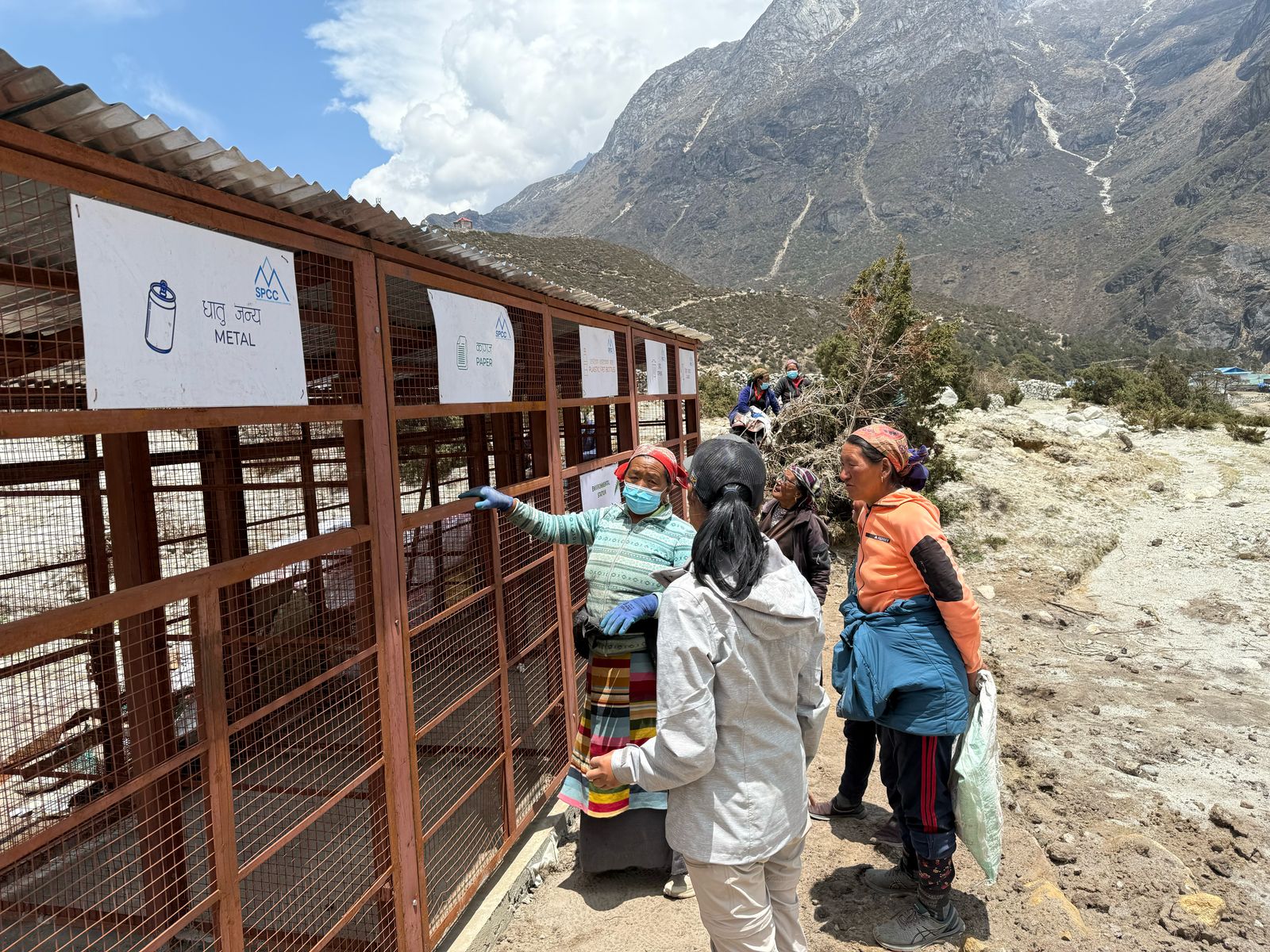
As tourism continues to grow as the primary livelihood in the Khumbu Region, SPCC has implemented targeted waste management strategies to address the increasing volume of garbage generated by lodges, restaurants, shops, and households. Since 2013, SPCC has been providing daily door-to-door waste collection services in major settlements like Namche and Lukla, covering over 170 businesses and households. We also operate from a field office in Toktok to support trail-side waste collection. To promote local ownership, SPCC has established and partnered with over 30 community-based Garbage Management Groups (GMGs), including youth and women’s groups, to improve waste handling in villages. These local partners lead regular cleanup campaigns and work closely with SPCC to manage waste sustainably, with ongoing financial and technical support from our team.
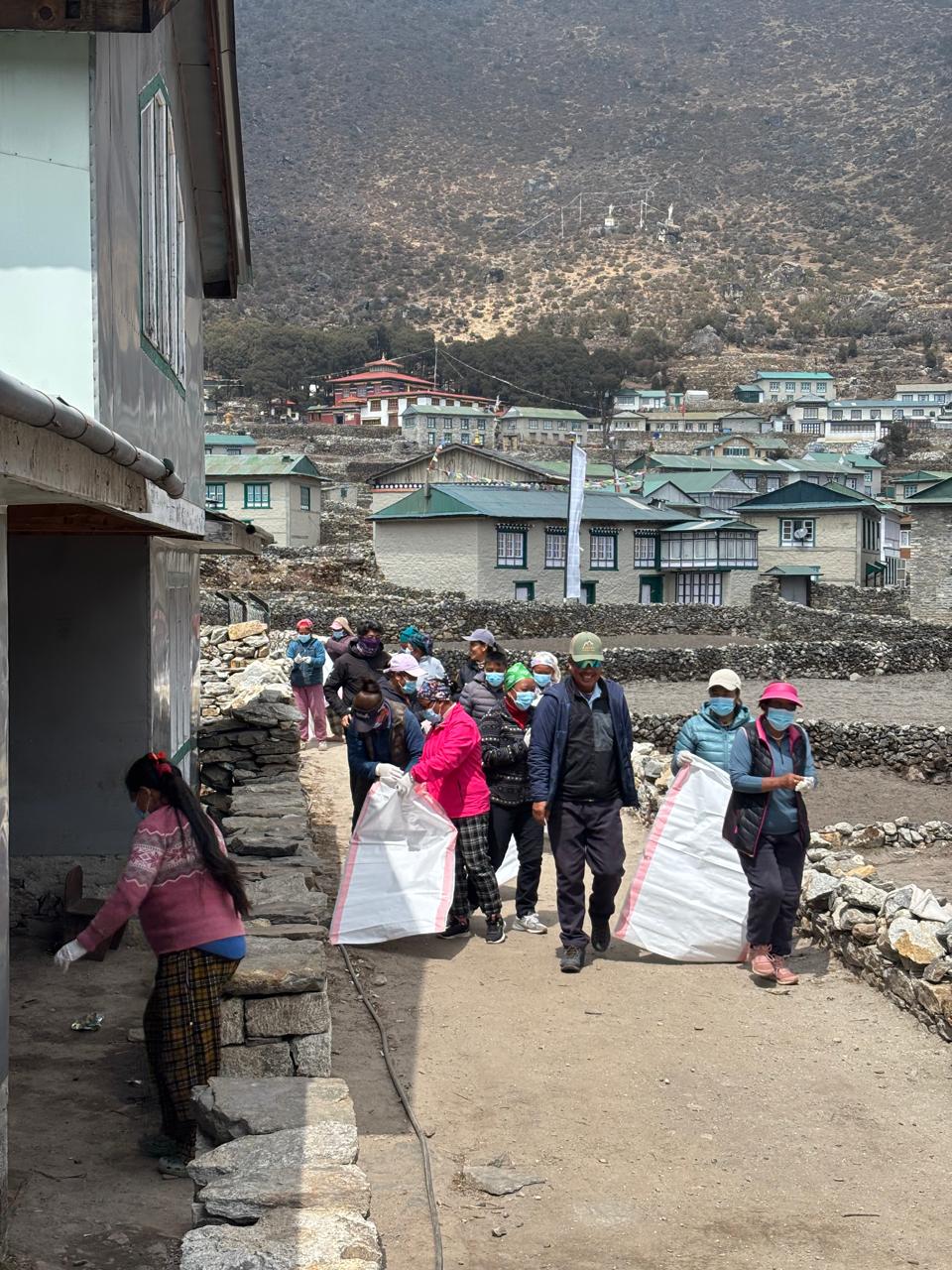
To establish a more efficient and sustainable waste collection system along trekking trails in the Khumbu Region, SPCC began constructing permanent garbage bins in 2013. Each bin is designed with separate chambers to allow for proper waste segregation and management. To date, SPCC has installed 125 garbage bins and continues to oversee their maintenance and operation. Our field staff, in coordination with local partners, regularly monitor the trails for littering and ensure that all bins are properly managed to keep the region clean and environmentally responsible.

As tourism continues to grow as the primary livelihood in the Khumbu Region, SPCC has implemented targeted waste management strategies to address the increasing volume of garbage generated by lodges, restaurants, shops, and households. Since 2013, SPCC has been providing daily door-to-door waste collection services in major settlements like Namche and Lukla, covering over 170 businesses and households. We also operate from a field office in Toktok to support trail-side waste collection. To promote local ownership, SPCC has established and partnered with over 30 community-based Garbage Management Groups (GMGs), including youth and women’s groups, to improve waste handling in villages. These local partners lead regular cleanup campaigns and work closely with SPCC to manage waste sustainably, with ongoing financial and technical support from our team.
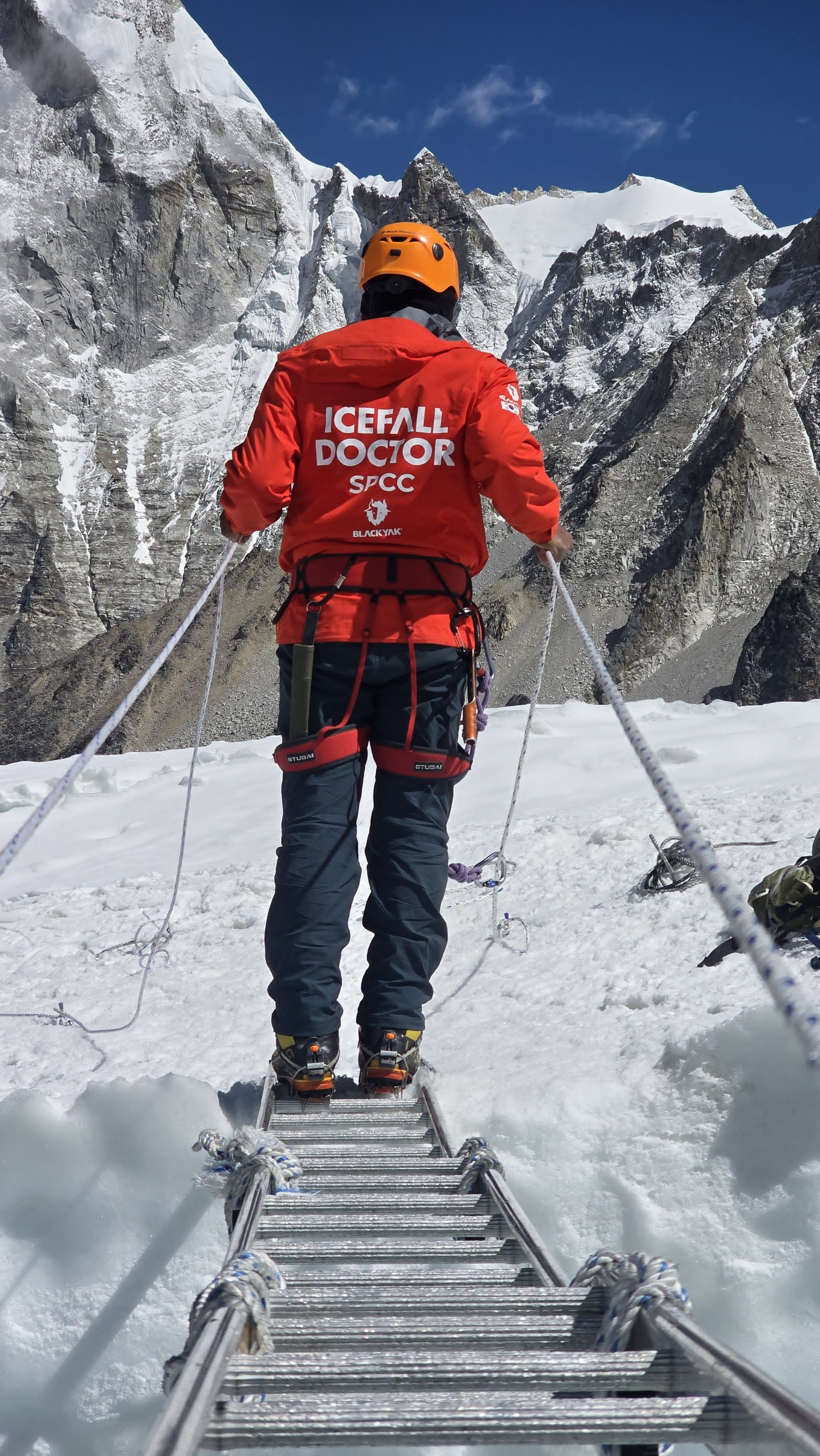
Since 2000, SPCC has been working in partnership with the Nepal Mountaineering Association (NMA) to implement the Illegal Climbing Control Project in the Khumbu Region. As the authorized local institution, SPCC monitors climbing activities and waste management on NMA-registered peaks, including Island Peak (Imja Tse), Lobuche, Mera, and others. A dedicated check post is established at Island Peak Base Camp, where SPCC inspection officers verify climbing permits and oversee waste management. Climbers are required to carry their permits at all times, and those found climbing illegally are subject to legal action under Nepalese law. No cases of illegal climbing were reported during the current fiscal year.
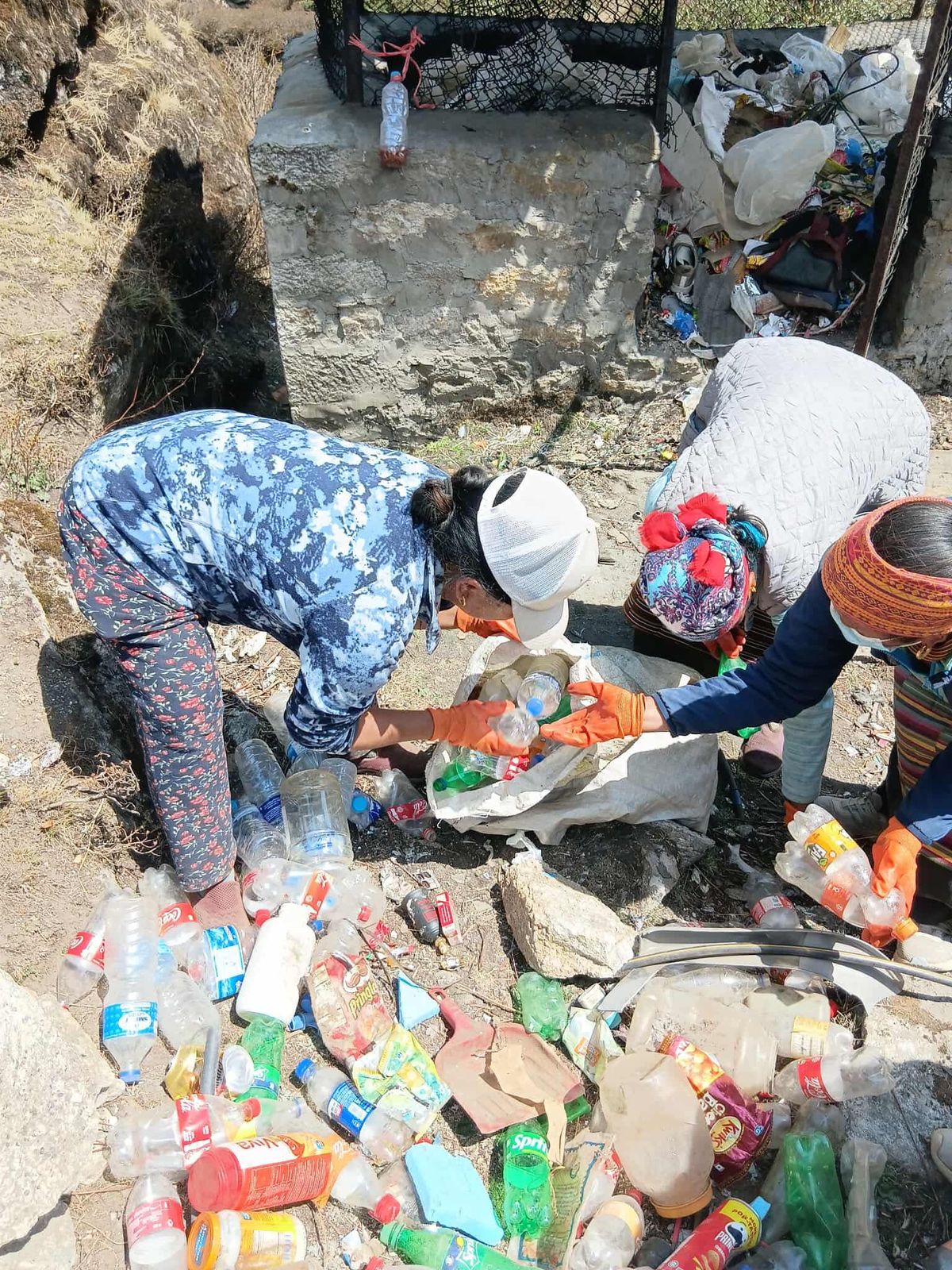
SPCC is the officially authorized local organization responsible for managing waste on permit-required mountains under the Ministry of Culture, Tourism and Civil Aviation (MoCTCA) and Nepal Mountaineering Association (NMA) registered peaks. Through our “Permit Registration, Garbage Declaration, and Clearance System,” all expedition teams must register their climbing permits via SPCC’s online system and submit a detailed list of food supplies and equipment. After their climb, teams are required to return all burnable and non-burnable waste to SPCC offices in Namche or Lukla, or to SPCC representatives at Everest, Island Peak, Lobuche Peak, or Amadablam Base Camps. Upon verification, SPCC issues a Garbage Clearance Certificate, which is mandatory to claim the garbage deposit refund from the Department of Tourism and/or NMA. SPCC manages burnable waste locally and transports recyclable materials to Kathmandu for proper processing. We also oversee human waste management at Everest, Lobuche, and Island Peak Base Camps to maintain hygiene and protect the fragile mountain environment.

Following the devastating Glacial Lake Outburst Flood (GLOF) in Thame on August 16th, 2024, which severely impacted the Khumbu Valley, the Sagarmatha Pollution Control Committee (SPCC) initiated Project RISE to strengthen climate resilience and disaster preparedness in the region. With over 30 years of environmental stewardship experience, SPCC is expanding its focus beyond waste management to address broader climate challenges.
Project RISE will establish a collaborative Research Hub uniting researchers, academics, local authorities, and communities. This hub will facilitate data sharing, integrate local knowledge, and support ongoing monitoring efforts—especially in glacial lake surveillance and community-led disaster management. Key initiatives include installing early warning systems and promoting local community involvement to build a safer, more sustainable Everest Region for the future.
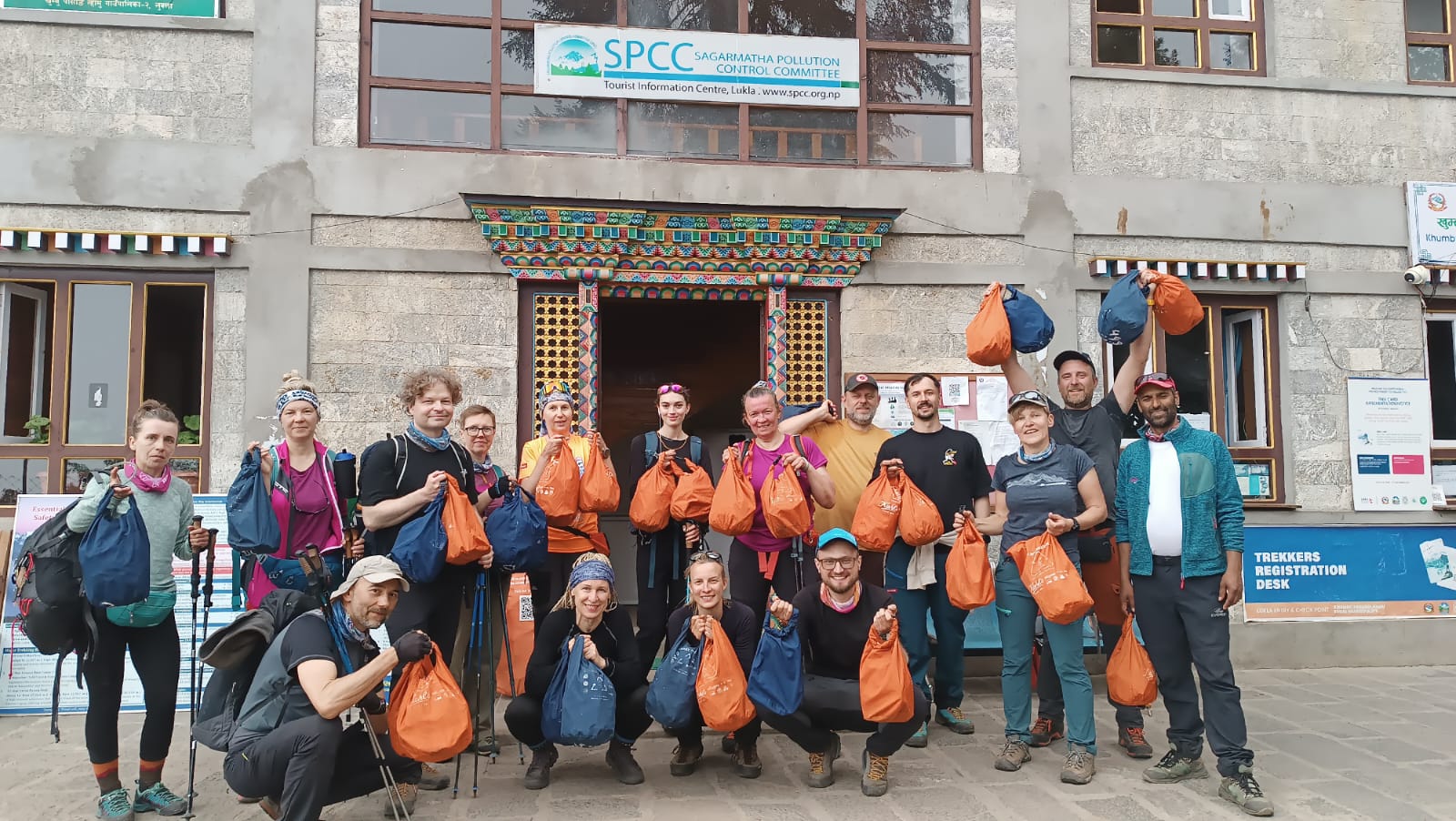
The Carry Me Back (CMB) project is a collaborative initiative by the Sagarmatha Pollution Control Committee (SPCC) and Sagarmatha Next, in collaboration with Sagarmatha National Park, Sagarmatha National Park Buffer Zone Management Committee, Khumbu Pasang Lhamu Rural Municipality, Tara Air, Sita Air, and Blue Waste to Value.
This project enables trekkers, guides, and locals to voluntarily transport semi-processed recyclable waste—including aluminum cans, PET bottles, tins, and glass—from the upper Khumbu settlements like Namche and Pangboche to Lukla airport. From Lukla, the waste is airlifted to Kathmandu for proper recycling.
CMB was successfully tested in Autumn 2019. The project temporarily halted due to the COVID-19 pandemic was restarted in Spring 2022 and has been growing ever since.
Impact
Thanks to the support of Dell Reconnect, Bally Peak Outlook Foundation, and Kiehl’s, CMB has made a remarkable impact. As of 2024:
🚶♂️19,002 volunteers have participated.
♻️ 27,481 bags of recyclable waste have been transported from upper Khumbu to Lukla.
Together, we can keep the Everest region clean—one step at a time!
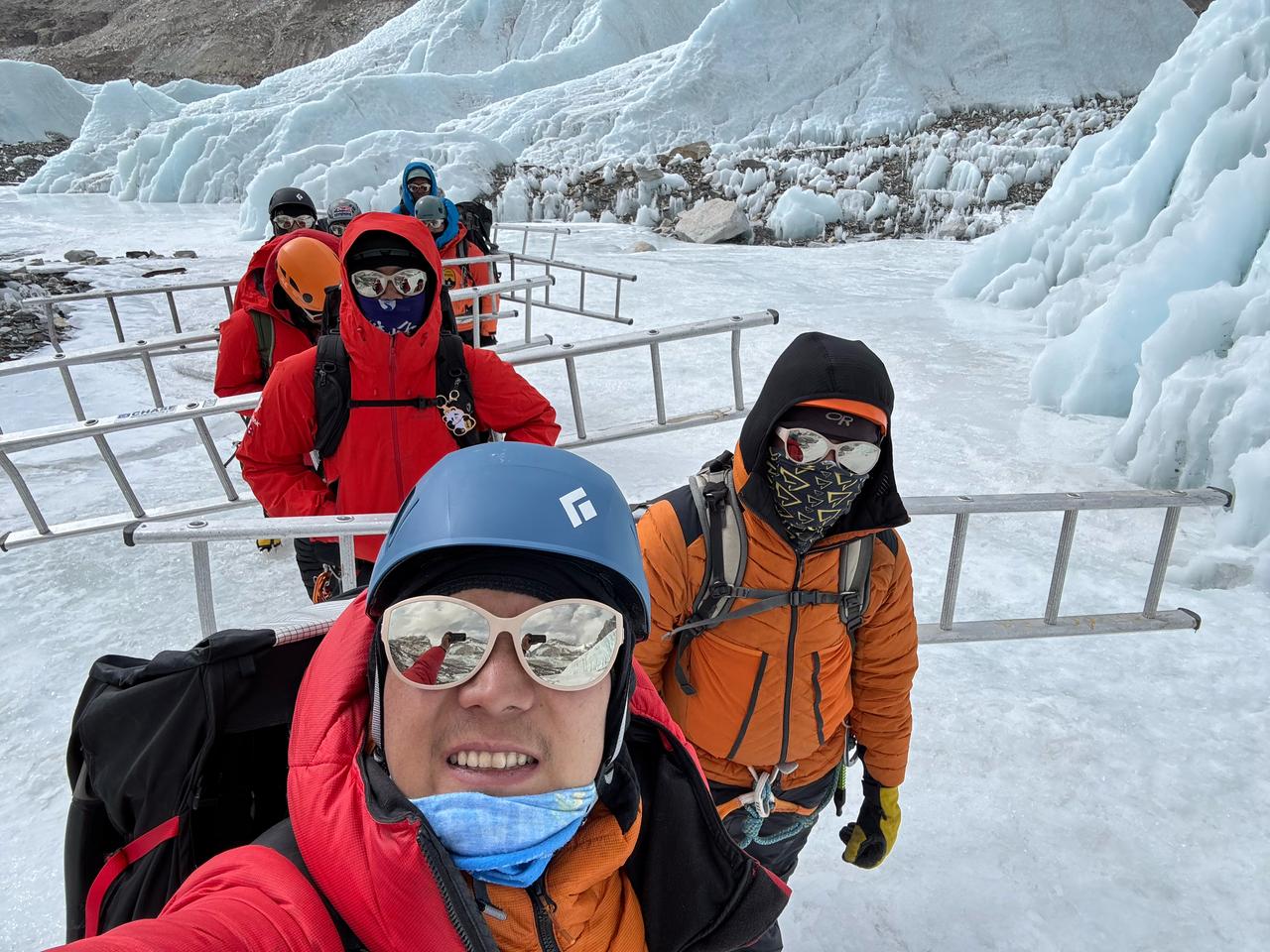
Since 1997, SPCC has been contracted by the Ministry of Culture, Tourism, and Civil Aviation (MoCTCA) to establish and maintain the climbing route through the Khumbu Icefall. This challenging section, situated between Everest Base Camp and Camp II, passes over deep and perilous crevasses and is widely considered the most dangerous part of climbing Mt. Everest.
Every climbing season, SPCC recruits a team of eight highly skilled Icefall Doctors to set up and maintain the Khumbu Icefall Route used by mountaineers ascending Mt. Everest, Mt. Lhotse, and Mt. Nuptse. The icefall doctors typically open the route in early April and close it at the end of May during the spring climbing season. Due to the constant instability of the icefall, the icefall doctors closely monitor and maintain the route throughout the climbing period.
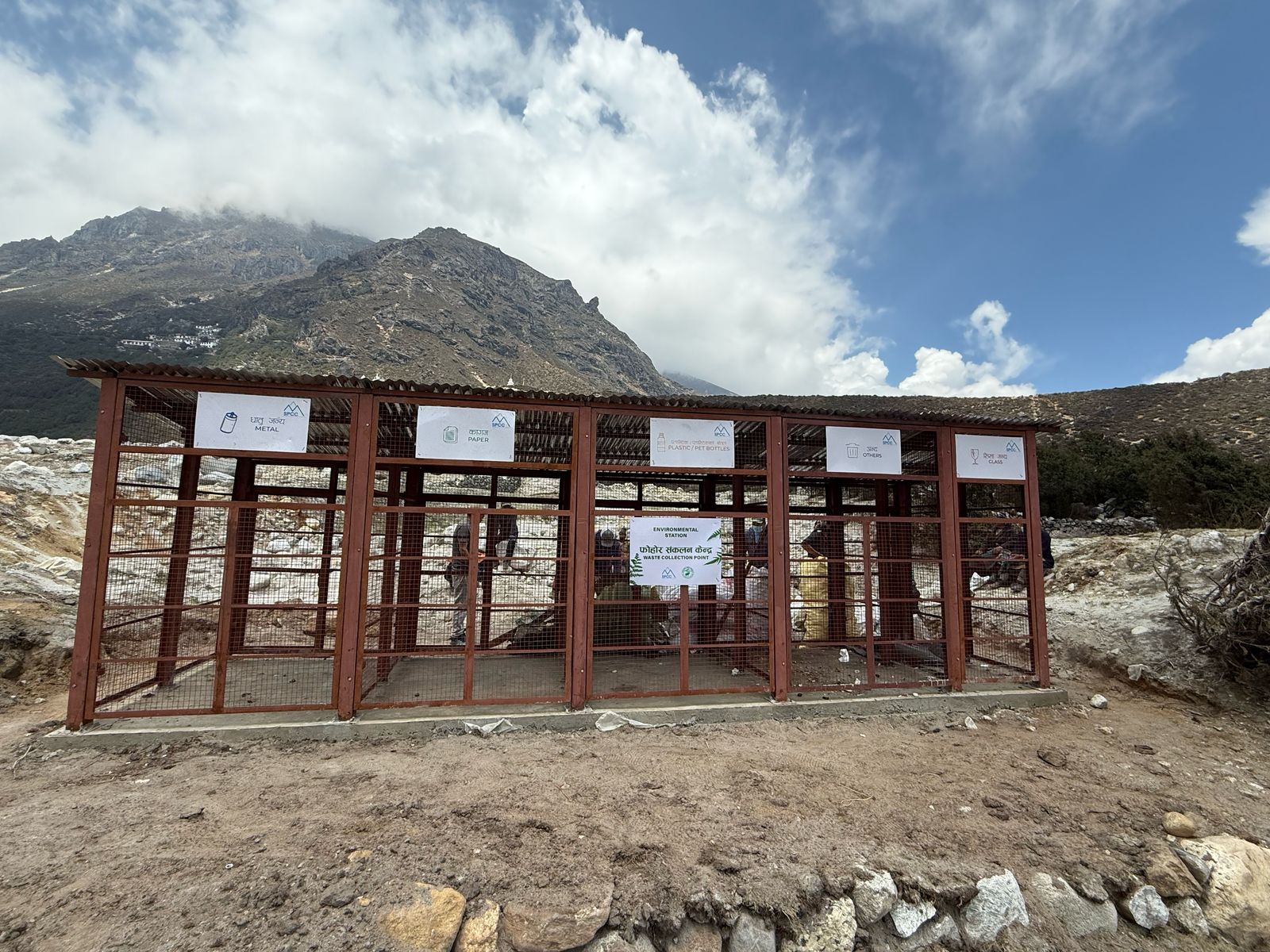
SPCC is committed to sustainable waste management by developing and maintaining essential infrastructure, including garbage bins, environmental stations, and material recovery facilities for collecting, sorting, and semi-processing waste. Our efforts focus on maximizing recycling through community awareness programs, regular cleanup campaigns, and strong partnerships with local organizations. Together, these initiatives help preserve the pristine environment of the Khumbu Region for future generations.

